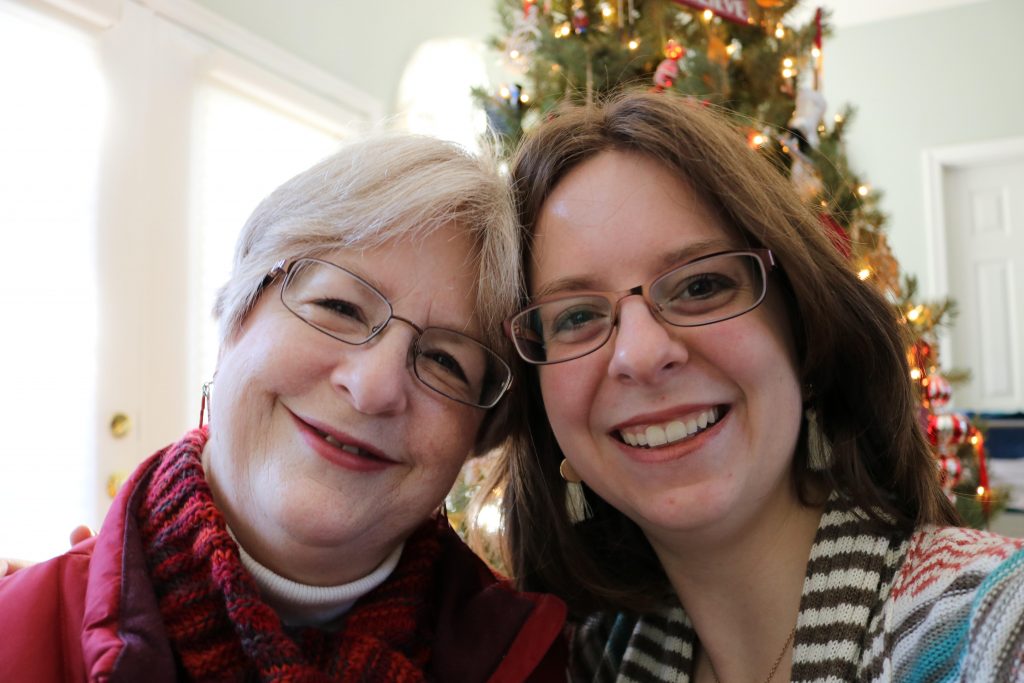My mom was diagnosed with severe rheumatoid arthritis (RA) when I was 6. While I have vague memories of her chasing me around the backyard, I mostly remember her after the diagnosis. Things like visiting rheumatologists’ offices together or searching for a fully charged electric cart at the grocery store.
I’ve been returning to my childhood experience a lot recently because I’m writing and directing a short film about a little girl dealing with her mom’s RA diagnosis. As I look back, I remember how normal my childhood felt at the time, but for my mom, it doubtless wasn’t that simple.
Balancing self-care and childcare is tough. Besides the normal worries of parenting, parents with invisible illness have to deal with unexpected obstacles and tough questions like, “Will I get sick too?”
I’d never wish this kind of struggle on any parent. But looking back from an adult’s perspective, having a mom with an invisible illness has made me a kinder, stronger person.
I’m willing to go at a slower pace.
As a kid, I learned to accept that my mom needed a nap every afternoon because of chronic fatigue. Sometimes, of course, I let her know just how much I didn’t like missing a visit to the playground. But having to slow down for another person forced me to become more considerate.
Now, I find that I instinctually accommodate people who need a little extra help. I’m willing to fall back and keep pace with the slowest walker, or spend extra time explaining technology to someone who doesn’t get it. Seeing my mom’s everyday experience has helped me be sensitive to people who hide their pain behind a “normal” exterior. And I often wonder, if I hadn’t spent so many afternoons entertaining myself, if I ever would have become a filmmaker.
I realize everyone has limits.
Every kid reaches a moment when they realize their parents aren’t invincible. I knew my mom had limits when I was 7 and saw her struggle to get out of bed in the mornings. Instead of making me think less of my mom, it had the opposite effect: I respected her more. Seeing her vulnerability has helped me be more honest about my own struggles as an adult, and also to accept other people’s limits.
I don’t judge people by appearances.
The hardest part of growing up with a parent with RA wasn’t helping her physically or even seeing her in pain. The hardest part was not being able to make other people understand. I remember following my young-looking mom around the store as she used a wheelchair or electric cart, and noticing others glare at us. They assumed, because my mom looked healthy, that she was lazy — but they couldn’t be farther from the truth. As an adult, I’ve transferred that sensitivity to not making snap judgements about other people. I’ve learned and believe deep down that what really matters is the character inside a person, not the way they look.
I choose to say “Yes I can,” not “No I can’t.”
The doctor who diagnosed my mom with RA told her that she’d be wheelchair-bound within a year. More than 20 years later, she walks around her neighborhood.
My mom’s refusal to let a negative prognosis stop her made a huge impact on my life. Anytime I feel like something is too intimidating or difficult, I remember how my mom fought RA: she did tons of research, advocated for herself, and got creative. She’s inspired me to be as bold about chasing my goals. Without her example, I doubt I would have had the guts to land a big internship in Washington, D.C., visit foreign countries, and now, direct a short film for the first time.

As a parent with an invisible illness, it’s easy to wonder if your kids are somehow missing out on a normal childhood. I’m here to tell you, they’ll come out stronger. By letting your kids see your vulnerability and determination, you’re giving them a wonderful gift. You’re showing them how to be empathetic, resilient adults.

